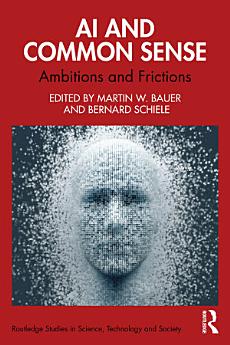AI and Common Sense: Ambitions and Frictions
About this ebook
Bauer, Schiele and their contributors from a range of disciplines analyse the nature of common sense, and the consequent challenges of incorporating into artificial intelligence models. They look at different ways we might understand common sense and which of these ways are simulated within computer algorithms. These include sensory integration, self-evident truths, rhetorical common places, and mutuality and intentionality of actors within a moral community. How far are these possible features within and of machines? Approaching from a range of perspectives including Sociology, Political Science, Media and Culture, Psychology and Computer Science, the contributors lay out key questions, practical challenges and "common sense" concerns underlying the incorporation of common sense within machine learning algorithms for simulating intelligence, socialising robots, self-driving vehicles, personnel selection, reading, automatic text analysis, and text production.
A valuable resource for students and scholars of Science–Technology–Society Studies, Sociologists, Psychologists, Media and Culture Studies, human–computer interaction with an interest in the post-human, and programmers tackling the contextual questions of machine learning.
About the author
Martin W. Bauer is Professor of Social Psychology and Research Methodology at the London School of Economics and Political Science (LSE). He investigates "common sense" in relation to science and emerging technologies in the international MACAS (Mapping the Cultural Authority of Science) network. He is a Fellow of the German National Academy of Technical Sciences (acatech). Recent publications include The Psychology of Social Influence: Modes and Modalities of Shifting Common Sense (2021, with Gordon Sammut); Atom, Bytes & Genes: Public Resistance and Techno-scientific Responses (2015).
Bernard Schiele (PhD) is a Professor of Communications in the Faculty of Communication at the University of Québec at Montréal (Canada). He has been working for a number of years on the socio-dissemination of S&T. Among other books he has recently published are Science Communication Today (2015, with Joëlle Le Marec and Patrick Baranger); Communicating Science, A Global Perspective (2020 with Toss Gascoigne and colleagues); Science Culture in a Diverse World: Knowing, Sharing, Caring (2021, with Xuan Liu and Martin Bauer); Le musée dans la société [The Museum in Society] (2021), and Science Communication: Taking a Step Back to Move Forward (2023, with Martin Bauer).






